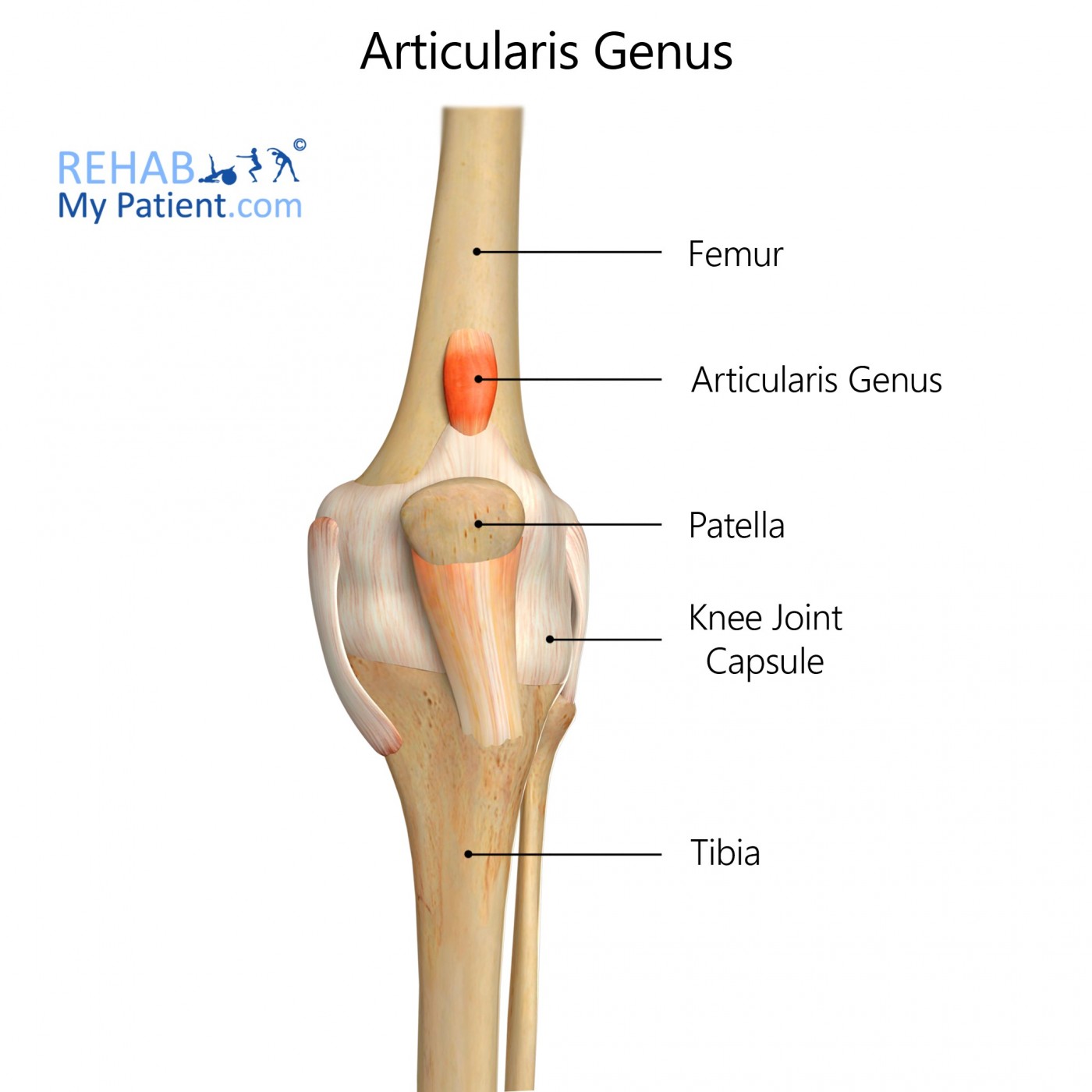Articularis Genus
Posted on 21st Jul 2020 / Published in: Knee

General information
The articularis genus is a highly variable muscle bundle made up of multiple layers, in the distal thigh and knee.
Literal meaning
The muscle of the knee joint.
Interesting information
The function of this muscle is not well known or understood, and its relationship to the vastus intermedius and vastus medialis is complex and also not well understood.
The articularis genus is made up of between 3 and 6 muscle bundles, as this varies, although this may be due to the lack of consensus of the articularis genus muscle definitions. There are superficial, intermediate, and deep layers of these bundles and each layer is located over the suprapatellar bursa.
Origin
The anterior surface of the distal aspect of the femur.
Insertion
The proximal and posterior walls of the suprapatellar bursa and the synovial membrane of the medial and lateral aspects of the knee joint capsule.
Function
Suggested functions:
Coordinates the movement of the suprapatellar bursa during flexion and extension
Proprioceptive function
Retracts the suprapatellar bursa during knee extension
Prevents entrapment of the bursa between the patella and the femur
Elevates the capsule and the synovial membrane of the knee joint and stopping them from being pinched during leg extension.
Nerve supply
Medial deep division of the femoral nerve.
Blood supply
Lateral femoral circumflex artery.

Relevant research
Research shows that the articularis genus muscles may not be able to generate enough force to lift the suprapatellar bursa during knee extension as well as that it likely never acts independently. Therefore, there is a complex interaction between the articularis genus, vastus medialis, and vastus intermedius.
Grob, K., Gilbey, H., Manestar, M., Ackland, T., & Kuster, M. S. (2017). The Anatomy of the Articularis Genus Muscle and Its Relation to the Extensor Apparatus of the Knee. JB & JS open access, 2(4), e0034
Articularis genus exercises
None specific.
Sign UP
Sign up for your free trial now!
Get started with Rehab My Patient today and revolutionize your exercise prescription process for effective rehabilitation.
Start Your 14-Day Free Trial